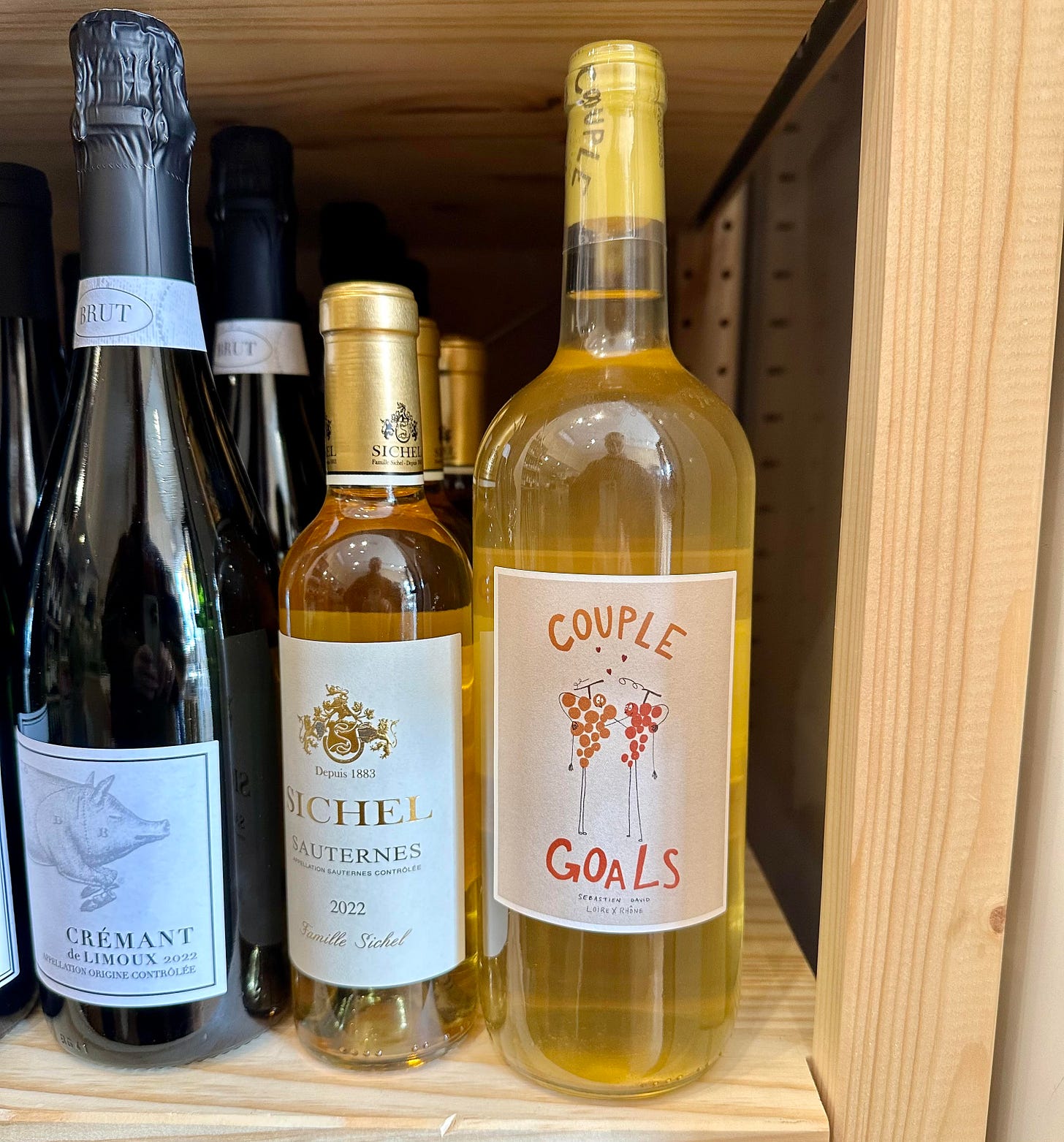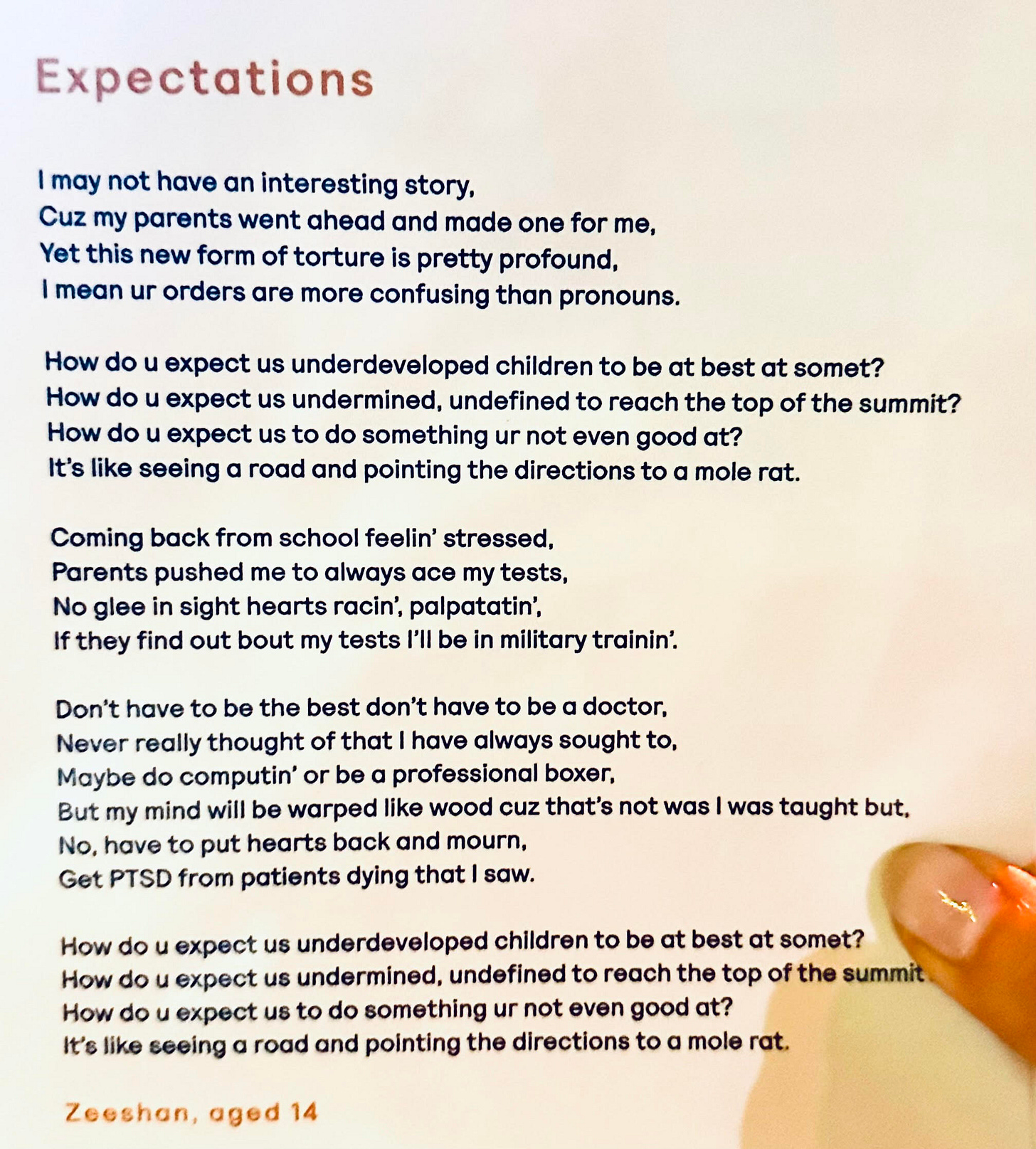Bits #30
Books piracy, beauty burnout + the babeification of wine. Also: Adolescence, Baby Fever, and the relationship between writer and editor
My husband came excitedly into our bedroom this week—as I lay horizontal with a bruised disc—brandishing a whisk and an avocado, with which he performed a trick he had learned on TikTok. It’s so good!1
While recuperating, I watched Baby Fever. I loved the first season of this Danish dramedy about Nana, a fertility doctor who drunkenly inseminates herself with her ex-boyfriend’s sperm (more charming than it sounds).
This season is even more chaotic and excruciating—Nana pretends to her patients that it is not her newborn baby she is hiding in the corner, but a “robot baby” that can’t be turned off—and full of terrible decision-making. But it is also sweet, and tender, as Nana navigates single motherhood, re-connecting with her Joanna Lumley-esque mother, and finding her father. The colour grader deserves a medal: all that bright teal and falu red! Divine.
Eight years ago I wrote about BFF marketing for BoF (when D2C women’s brands began using intimate asides/ cutesy entreaties to speak to their customers) and after spotting this last week, I think we might now be witnessing the babeification of wine. Sommeliers, wdyt?
I adored this piece on editors, by Jill Lepore for The New Yorker and sent to me by my friend Camille. I love editing—my own work and others—and greatly miss having an editor for this newsletter. (It is logistically impossible: I write up to the wire, and always late.) The founder of The New Yorker, Harold William Ross, believed that “writers were children; editors were adults”. The relationship between editor and writer “can be as intimate as an affair and as ineffable as a marriage” writes Lepore, but it is also “lopsided”, with the editor retaining authority. Early in editor Adam Gopnik’s career, he received a perfect piece of journalism from John Updike. So perfect that he set it aside, with no notes. Soon he received a postcard from an anxious Updike, revealing that even the mightiest writers fear the editorial pen:
Dear Adam,
The piece recently submitted was
a) deemed unacceptable,
b) in need of significant rewriting,
c) lost behind a radiator.
JohnI can’t dwell on this for too long as it’s depressing as hell—and ominous to boot— but in The Atlantic this week, Alex Reisner reveals that books piracy database LibGen—which Meta used to train its A.I.— has copied (if ‘copied’ means ‘stolen’), 7.5 million books and 81 million research papers. (Daisy Buchanan wrote this week about discovering her novels had been stolen). What’s both baffling and terrifying, is that if Meta can prove this was “a fair use exception” then it might not even be criminal.
Like everyone, I binged the extraordinary and harrowing Adolescence the moment it dropped and have been talking about little else for the past week. With each episode shot in a single take, it tells the why rather than than the who of a 13-year-old girl’s murder, by a seemingly sweet and bright young boy. It keys into urgent conversations about smartphones and social media, but also how the manosphere (calling a classmate an ‘incel’ for eg) can be used as a tool for bullying, and the trigger points for those pre-disposed for violence. I sobbed for almost the entire final episode. (I’m so thrilled that the brilliant Stephen Graham is getting the international acclaim he deserves.) I’m not going to share my full thoughts on the series, because I’m working on a letter for next week where I speak to an eminent adolescent psychologist about her thoughts on the show, and the modern teenager. If there’s anything you want to ask her, please drop a Comment below by Sunday.
If you want to really dig into the conversation around the show, I rec Gareth Southgate’s Dimbleby lecture this week on the isolation of young men (an interesting riposte to Southgate’s lecture in The Times from Tom Peck: “The world is drowning in outstanding male role models… But the good ones can’t drown out the bad ones”) and Caitlin Moran on toxic masculinity, via Channel 4. I also enjoyed the brilliant Erin Doherty on How To Fail and this Netflix podcast with Graham and Doherty.
Don’t come @ me, but this series of White Lotus just isn’t punching for me. I do however, love the “return to real teeth” discourse. (I couldn’t stop watching Dr Rhona Eskander on Charlotte Le Bon and Aimee Lou Wood’s perfectly imperfect teeth.) On the subject of Le Bon, whose character Chloe is outraged when her uncharming husband Greg/Gary calls her French (she’s québécois), my Canadian friend Monica flagged this hilarious/insane two decade old episode of This American Life, on what Americans think of Canadians.
“Paul Tough: Well, I think that Americans generally think of Canadians as a pretty quiet, nondescript, stay-at-home kind of culture. And when Canadians come to the United States and have that kind of impact on the culture, I think it's a surprising fact…It's like suddenly discovering that everything you believed about someone was false.
Alix Spiegel: I guess it's the whole invasion of the body snatchers syndrome. They look like us, but they're not us.
Nancy Updike: It's weirdly like people hearing that somebody they didn't know was gay is gay, and it turned them back on themselves, that they could have brushed so close and not known.
Ira Glass: He’s Canadian, so that’s why he never married.”
Like the red book and leaps, phonics is something I knew nothing of pre-kids and that dominates early years parenting. I really recommend a new app by Miss Mabel, a mother of 3 whose Reading Roots channel is the No.1 literacy resource on social media. She’s both warm and engaging.
Speaking of literacy, I went to The National Literacy Trust fundraising gala on Thursday, which is an annual highlight because I get to watch Axel Scheffler live draw the gruffalo. I’m so happy to support the brilliant work of The NLT, whom I edited What Writers Read in aid of. (In my prologue, which is free to read on Substack, I explain more about what’s been happening with library closures, and how the trust works.) At each place was an awesome poem by the teenage Zeeshan, which was read by The NLT’s Imran Hafeez. Read aloud!






